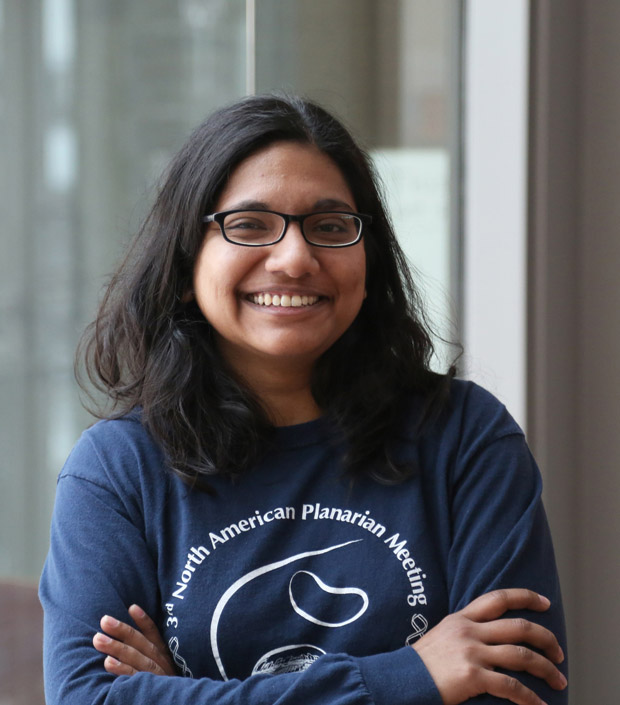Tania Rozario

Research
As a developmental biologist, I have been fascinated by the extraordinary physiological capabilities of parasites like tapeworms. Tapeworms are well known for the enormous lengths they reach, which often elicit freak headlines in popular media. The success of these parasites is largely enabled by stem cells that drive growth, regeneration, and prolific reproduction and my lab’s research seeks to uncover the molecular mechanisms that regulate these feats.
We have (re)established the rat tapeworm, Hymenolepis diminuta, as a tractable model organism. This species was a favorite model among parasitologists in the early-mid 20th century but was left behind by the molecular biology revolution. We have developed tools such as transcriptomics, in vitro culture, in situ hybridization, and RNA interference and are continuing to advance this model with additional genetic tool-building. With these techniques in hand, we seek to answer several fundamental questions that elucidate tapeworm biology: How is tapeworm regeneration regulated? What are the signals that promote or restrict regenerative potential? How is the tapeworm stem cell niche established and maintained? What are the mechanisms that segregate germ cells from somatic stem cells and how is this coordinated with segment generation? How does the tapeworm elaborate its hermaphroditic reproductive system? These big-picture questions motivate our lab’s research and hold the potential for future translation into medical interventions that treat tapeworm infections.
Selected Publications
Rozario T, Newmark PA. 2015. A confocal microscopy-based atlas of tissue architecture in the tapeworm Hymenolepis diminuta. Exp Parasitol 158: 31-41. PMID: 26049090
News

Assistant Professor, Department of Genetics
245A Coverdell Center
(office) 706-542-0197
(lab)
tania.rozario@uga.edu
website
Pubmed
